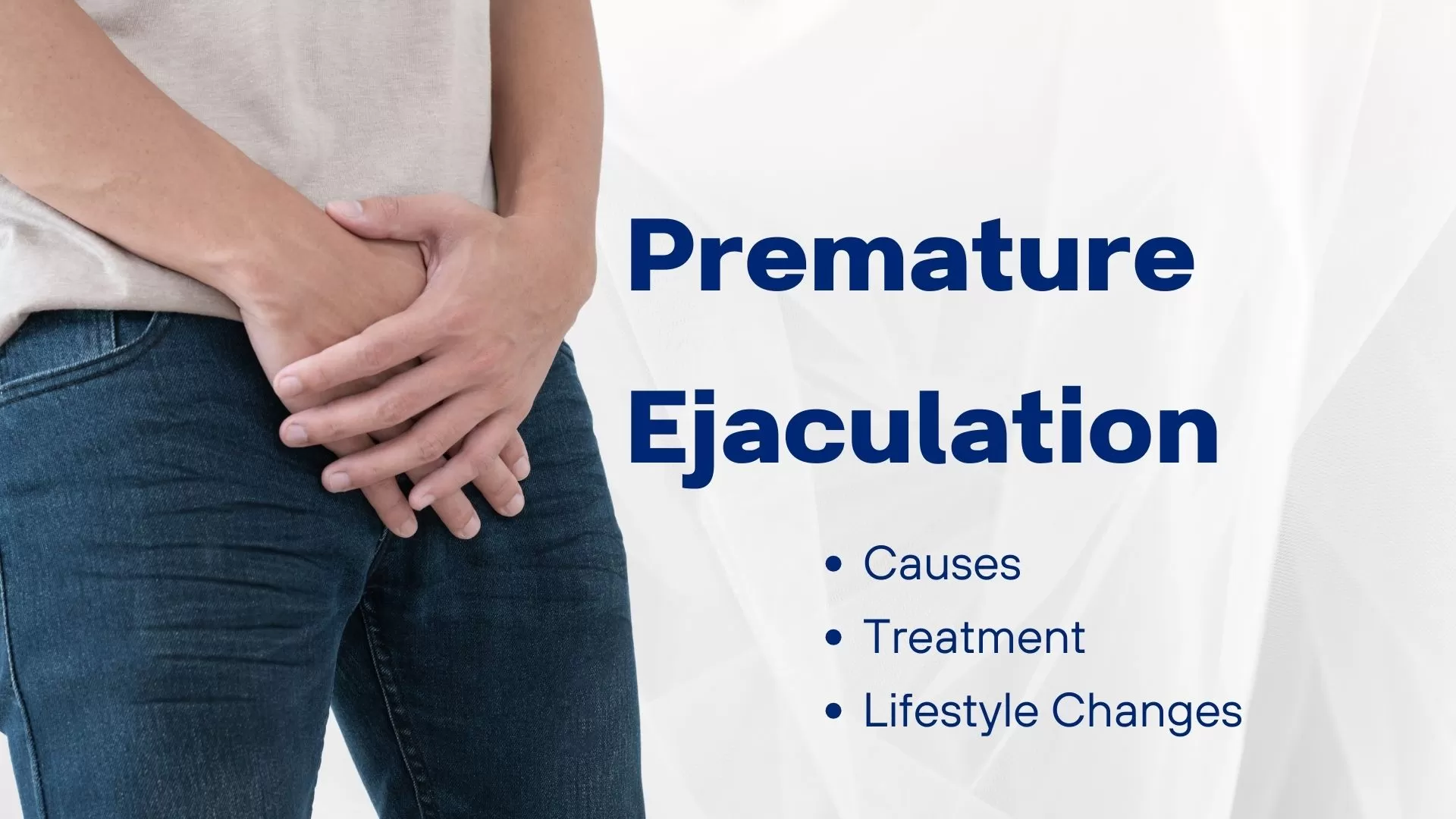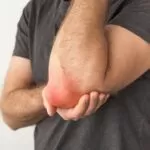Premature Ejaculation Treatment
On premature ejaculation treatment, some people mistakenly believe that premature ejaculation (PE) is a disease or a permanent problem that cannot be fixed. Others assume that some men are naturally better at controlling their ejaculation than others. However, these beliefs are not true.
PE happens when a man reaches climax and ejaculates (releases semen) sooner than he wants during sexual activity. It is a common sexual health issue that affects men of different ages. In fact, studies show that approximately 1 in 3 men between the ages of 18 and 59 in the United States experience PE at some point in their lives.
Types of Premature Ejaculation
There are two main types of PE:
- Primary PE – This means the condition has been present since a man became sexually active.
- Acquired PE – This develops later in life, often due to stress, relationship problems, or health conditions.
The Emotional Impact of PE
Experiencing PE can be stressful for both the man and his partner. Many men feel embarrassed or frustrated, and their partners may also feel unsatisfied or concerned. However, it’s important to know that treatment options are available, and these negative feelings can improve with the right help.
When Should You See a Doctor?
If you or someone you care about is struggling with PE and it is causing stress or anxiety, it’s a good idea to speak with a healthcare professional. You are not alone, and doctors are trained to help. They can determine the underlying cause and suggest effective treatments.
To learn more about available treatment options, visit:
🔹 Mayo Clinic: Premature Ejaculation
🔹 Cleveland Clinic: Understanding Premature Ejaculation
How Does Ejaculation Work?
Ejaculation is the release of semen from the penis during orgasm. It is a reflex controlled by the central nervous system (CNS)—which includes the brain and spinal cord.
When a man becomes sexually aroused, the brain sends signals down the spinal cord to the reproductive system. Once sexual excitement reaches a peak, the brain signals the body to release semen through the penis.
The Two Phases of Ejaculation
Ejaculation happens in two main stages:
Emission Phase
- Sperm travels from the testicles to the prostate gland, where it mixes with seminal fluid to form semen.
- The vas deferens (tubes that transport sperm) help move it toward the base of the penis.
Expulsion Phase
- The muscles at the base of the penis contract, forcing semen out of the penis.
- This usually happens at the same time as an orgasm (climax), but some men can have an orgasm without ejaculating.
- After ejaculation, erections typically subside.
For more detailed information on ejaculation, check out these links:
🔹 Harvard Health: The Science of Ejaculation
🔹 Urology Care Foundation: Ejaculation Disorders
By understanding how ejaculation works and that PE is a treatable condition, men can take steps toward improving their sexual health and confidence. If you have concerns, don’t hesitate to seek medical advice.
What is Premature Ejaculation?
Premature ejaculation (PE) happens when a man ejaculates (releases semen) sooner than he or his partner would like during sexual activity. Doctors generally define PE as ejaculation that occurs within 2 to 3 minutes of penetration, although this can vary between individuals.
PE is also known as:
🔹 Rapid ejaculation
🔹 Premature climax
🔹 Early ejaculation
Occasional PE is common and not always a cause for concern. However, if it happens frequently and affects sexual satisfaction or relationships, it might be time to seek help from a healthcare provider.
For more information, visit:
🔹 Mayo Clinic: Premature Ejaculation
🔹 Cleveland Clinic: Premature Ejaculation
Premature Ejaculation and Erectile Dysfunction (ED)
PE sometimes occurs alongside erectile dysfunction (ED)—a condition where a man struggles to get or maintain an erection firm enough for sex.
Since an erection naturally goes away after ejaculation, it can be difficult to tell whether the issue is PE or ED. In many cases, doctors recommend treating ED first because once a man can maintain a strong erection, PE may no longer be a problem.
🔹 Learn more about ED here: Harvard Health: Erectile Dysfunction
Causes of Premature Ejaculation
The exact cause of PE is unknown, but several biological, chemical, and psychological factors may contribute.
Serotonin Levels
Serotonin is a natural chemical in the body that helps regulate mood, emotions, sleep, and sexual function.
- High levels of serotonin in the brain delay ejaculation.
- Low levels of serotonin shorten the time to ejaculation, increasing the risk of PE.
Some antidepressants (Selective Serotonin Reuptake Inhibitors, or SSRIs) that increase serotonin levels are sometimes prescribed to help with PE.
Psychological Factors
Mental health and emotional well-being play a big role in sexual performance. Psychological issues that may contribute to PE include:
🔹 Depression
🔹 Anxiety (especially performance anxiety)
🔹 Chronic stress
🔹 Guilt related to sex
🔹 Unrealistic expectations about sex
🔹 Low self-confidence
🔹 History of sexual repression (suppressed or bottled-up sexual feelings)
🔹 Relationship problems
Addressing emotional and mental health concerns can often help reduce PE.
Other Contributing Factors
- Hormonal imbalances
- Nerve sensitivity issues
- Pelvic floor muscle dysfunction
- Inflammation of the prostate (prostatitis)
Premature Ejaculation and Aging
PE can occur at any age, but aging is not a direct cause of the condition. However, some older men experience:
- More frequent ED due to lower testosterone levels.
- Less firm erections or reduced erection size.
- Shorter time before ejaculation occurs.
These changes can sometimes increase the likelihood of PE in older men.
How PE Affects Relationships
PE can impact both partners in a relationship. If left unaddressed, it can cause:
- Frustration and emotional distress
- Lower sexual satisfaction for both partners
- Feelings of shame, embarrassment, or guilt
- Emotional distance or relationship strain
What Can Help?
🔹 Open Communication – Talking with your partner about PE can relieve stress and build understanding.
🔹 Couples Counseling or Sex Therapy – A trained therapist can help you and your partner develop strategies for improving intimacy.
🔹 Techniques to Improve Control – Exercises like the squeeze technique (see treatment options) can help delay ejaculation.
🔹 Relaxation Techniques – Anxiety and stress can make PE worse, so learning to relax can improve control.
For professional guidance, check out:
🔹 American Urological Association: Sexual Health
By understanding what causes PE and how to manage it, men can take steps to improve their sexual health and confidence. If PE is affecting your quality of life, speaking to a healthcare provider is the best way to find a solution.
Diagnosing and Treating Premature Ejaculation (PE)
Diagnosis of Premature Ejaculation
Most men have some level of control over when they ejaculate during sexual activity, whether with a partner or during masturbation. If a man feels he lacks control over his ejaculation and this causes distress for him or his partner, he may be experiencing premature ejaculation (PE).
If PE affects your ability to enjoy sex, it’s a good idea to see a healthcare provider for an evaluation.
How is PE Diagnosed?
A doctor will diagnose PE based on:
✔️ How often it happens (Is it an occasional issue or a constant problem?)
✔️ When it started (Has it always been an issue or did it develop later in life?)
✔️ Who it happens with (Does it occur with all partners or only in certain situations?)
✔️ Type of sexual activity (Does it occur during intercourse, foreplay, masturbation, or when watching sexual content?)
✔️ Personal and relationship effects (Has it changed your sexual confidence or intimacy with your partner?)
✔️ What makes it worse or better (Do alcohol, drugs, or stress impact the problem?)
Medical Tests
In most cases, a physical exam and discussion with your doctor are enough to diagnose PE.
🔹 Lab tests (such as hormone tests) are only needed if the doctor suspects an underlying health condition.
🔗 Learn more:
- Cleveland Clinic: Premature Ejaculation Diagnosis
- Mayo Clinic: When to See a Doctor
Treatment Options for Premature Ejaculation
There are three main treatment approaches for PE:
Psychological therapy – Addressing emotional and mental factors
Behavioral therapy – Exercises to improve ejaculation control
Medical therapy – Medications and topical treatments
Most men benefit from combining different treatments to find what works best.
Psychological Therapy
PE can sometimes be linked to anxiety, stress, depression, or relationship issues. Talking to a psychologist or sex therapist can help you:
✅ Identify emotional triggers for PE
✅ Reduce performance anxiety
✅ Build confidence in sexual relationships
✅ Improve communication with your partner
For couples, relationship counseling can help partners understand and support each other.
🔗 More on therapy:
Behavioral Therapy (Sexual Exercises)
These methods help men train their bodies to delay ejaculation over time.
The Squeeze Method
👉 How it works:
- You or your partner stimulates the penis until you are close to ejaculation.
- Before climax, apply firm pressure to the tip of the penis.
- This reduces arousal slightly and helps increase control over ejaculation.
- Repeat this process multiple times to train yourself to last longer.
The Stop-Start Method
👉 How it works:
- You or your partner stimulates the penis until just before ejaculation.
- Stop stimulation and wait for the urge to ejaculate to fade.
- Repeat this process three times, then ejaculate on the fourth time.
- Practice 3 times per week until you gain more control.
👉 Effectiveness:
- These exercises are non-invasive and can help improve control.
- However, results may not be permanent, and consistency is key.
🔗 Read more:
Medical Therapy (Drugs and Topical Treatments)
Medications
🔹 Antidepressants (SSRIs) – Doctors found that some antidepressants delay orgasm. These are sometimes prescribed off-label (for a use different than originally intended) for PE:
- Fluoxetine (Prozac)
- Paroxetine (Paxil)
- Sertraline (Zoloft)
- Clomipramine (Anafranil)
📌 Important Notes:
- These medications must be taken regularly for a few weeks before they work.
- Some men may need to take them continuously to prevent PE from returning.
- Side effects can include drowsiness, nausea, or lower libido.
🔹 Pain Medications (Tramadol) – Sometimes prescribed to slow down ejaculation, but should only be used under medical supervision.
🔹 Alpha-1 Blockers – These medications affect muscles in the reproductive system and can alter ejaculation patterns.
🔗 Read more:
- Harvard Health: Premature Ejaculation Medications
Numbing Creams and Sprays
These topical treatments reduce sensation on the penis to help delay ejaculation.
👉 How to use:
Apply 20–30 minutes before sex.
Wash off 5–10 minutes before penetration to avoid numbing your partner.
Consider using a condom to prevent vaginal numbness.
💊 Common numbing agents:
- Lidocaine cream/spray
- Prilocaine cream/spray
- Combination of both (EMLA cream)
📌 Caution: Leaving these on too long can reduce erection quality.
What to Expect After Treatment
✅ Success Rate: Around 95% of men recover from PE with treatment.
✅ Ongoing Management: Some treatments require long-term use to maintain results.
✅ Relaxation is Key: Learning to manage stress and anxiety can improve control over ejaculation.
💡 If PE persists, continue working with your doctor to find the best solution for you.
🔗 Learn More:
- Cleveland Clinic: Treating PE
By understanding PE, its causes, and available treatments, men can take control of their sexual health and improve their confidence in intimate relationships. If PE is affecting you or your partner, talk to a healthcare professional to explore solutions.
Home Remedies
Supplements for Premature Ejaculation (PE)
While there is no permanent cure for PE, some natural supplements may help improve sexual performance and increase control over ejaculation. These supplements support overall reproductive health, but research is still limited on their direct impact on PE.
Zinc 🦪
Why is it important?
- Zinc plays a crucial role in testosterone production and male fertility.
- Some studies suggest that low zinc levels may contribute to sexual dysfunction.
Potential Benefits for PE:
✔️ May boost libido and sexual function.
✔️ Supports healthy sperm production.
✔️ Might increase testosterone levels, which could help with overall sexual health.
🔹 Does Zinc Directly Help PE?
🚫 No strong evidence proves that zinc prevents PE, but it may help with sexual stamina and libido.
Magnesium 🥦
Why is it important?
- Magnesium helps regulate muscle contractions, including those involved in ejaculation.
- A 2019 study suggested that low magnesium levels may lead to premature ejaculation due to increased involuntary muscle contractions.
Potential Benefits for PE:
✔️ May reduce muscle contractions linked to early ejaculation.
✔️ Supports relaxation and stress reduction, which can help delay climax.
✔️ Helps maintain healthy nerve function.
Other Essential Minerals 🥜
Some other important minerals for male reproductive health include:
✅ Calcium – Supports nerve function and muscle control during ejaculation.
✅ Copper – Helps with blood circulation, which is essential for erection quality.
✅ Manganese – Plays a role in hormone regulation and sperm function.
✅ Selenium – Acts as a powerful antioxidant for sperm health and fertility.
📌 Do These Minerals Help with PE?
There’s no strong evidence that these minerals directly prevent PE, but they support reproductive health and may improve overall sexual function.
Should You Take These Supplements? 💊
If you suspect a deficiency, getting these minerals from food sources or supplements might be beneficial. However, always consult a doctor before taking supplements, especially if you have underlying health conditions.
Benefits of Eating Strawberries
Benefits of Eating Pomegranate

A graduate of Computer Science and Information Management Technology. Diploma – Caregiving, Certificates – Dementia and Diabetes Awareness and Management. A researcher, blogger, songwriter, singer and acoustic guitarist. Born in an environment where natural talents such as healing are imparted at our natural birth. This natural talents of healing is the result of our genetic inheritance and the training from family environment.






















